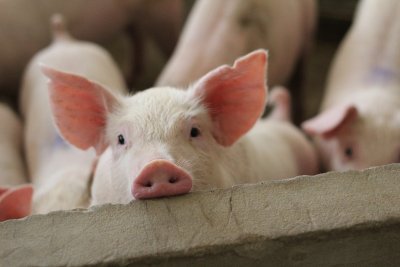News • Good Food Trade Campaign
Sustain Brexit Forum news roundup: Sustainable fish
The Government's plan for replacing the EU Common Fisheries Policy has at last been published - find out more here. This is an extract from Sustain's Brexit Forum newsletter, June/July 2018. Sign up to receive news updates monthly or bi-monthly at: www.sustainweb.org/brexit
Read Sustain’s briefing for MPs and policy-makers on UK fisheries policy. Contact: ruth@sustainweb.org
Government releases plan for fishing after Brexit
The Government has opened its consultation on the future of UK fishing with a White Paper: Sustainable Fisheries for Future Generations, presaging a new Fisheries Act as the main instrument to replace the EU Common Fisheries Policy.
As Sustain and colleagues at the New Economics Foundation have argued, there is clear evidence that looking after our marine environment makes good business sense, so there is every reason to aim for the best-managed fisheries in the world. Despite warm sentiments however, the White Paper contains no clear target for all UK fisheries to become ‘demonstrably sustainable’, i.e. being green-rated by the Marine Conservation Society and fished to no more than Maximum Sustainable Yield. It also lacks clarity on improving data collection or guaranteeing public funding to support the transition to sustainable management, so there is much cause for concern. Read Sustain’s response here; meanwhile, Scotland’s rural economy secretary Fergus Ewing said that whilst fisheries are a devolved matter, Scotland’s fishery concerns had been largely ignored in the White Paper.
Changes in wording also signal possibly worrying weakening of sustainability requirements. For example, the White Paper contains no clear, unambiguous statement that the UK will have to limit fishing to ‘Maximum Sustainable Yield’ (MSY) by 2020 – a clear commitment for the UK whilst within the EU. The White Paper mentions MSY, but only in vague terms and with no target date for compliance. Deliberate omission, mission drift or detail to be filled in later? Time and tide will tell – Sustain will point this out. Also, under the EU’s Seabird Plan of Action, the fishing industry was obliged to eliminate bycatch. The White Paper suggests that post-Brexit they would need only to implement “practical and effective risk-based mitigation”.
Slim pickings for smaller fishers
From conversations and participation in the consultation process so far, it seems unlikely that smaller fishers will be guaranteed fairer access to fishing quota. This is lamentable and ironic given the memorable part that small fishing boats played in the EU referendum campaign, motoring up the River Thames to deliver their message to Parliament. There is no indication that there are any plans to redistribute fishing quota to smaller or artisan fishers. Meanwhile, there are early signs that fish processors based in the UK may be considering moving their operations to other European countries, to be able to access the lucrative EU market tariff-free from within the EU.
Setting an ambitious marine agenda
The overall aim must be for a “thriving, sustainable fisheries, set within a healthy marine environment, that support coastal communities and provide consumers with a high quality, sustainable product”, argue Greener UK and Wildlife & Countryside Link. “The government’s plans for fisheries after Brexit are promising but alarmingly devoid of detail about its environmental commitments,” lawyers from ClientEarth have said, urging government to include:
- Requirements for government to set truly sustainable catch limits according to the best scientific advice
- High environmental standards for fishing gear and methods and better protection for vulnerable ocean ecosystems
- More resources for robust monitoring and enforcement of fisheries laws
- A commitment that negotiations with the EU and other countries will ensure commercially important shared stocks are managed sustainably
Sustain adds: Government must act as responsible consumers by committing to buy sustainable UK fish through legally-binding standards for food served across the public sector, including NHS hospitals, An investigation by Sustain’s Sustainable Fish Cities, published in The Independent, found that UK fishers are losing out on £62 million because UK companies are buying in sustainable fish from overseas. The Government must help UK fishers collect better data, to enable them to benefit from the growing market for ethical seafood, said Sustain.
Marine Conservation Zones proposed
On World Oceans Day in June, Defra Secretary Michael Gove also launched a consultation on plans to create more than 40 new Marine Conservation Zones across the UK – safeguarding almost 12,000 square kilometres of marine habitats and marking a significant expansion of the UK’s ‘Blue Belt’ of protected areas. Marine groups such as the Marine Conservation Society welcomed the news and responded to the consultation (now closed).
Those interested in fisheries policy overhaul are likely to need to be in it for the long haul. The Blue Marine Foundation estimates it could take 20 years for the UK to fully leave the CFP.
Note: The UK Government’s plans for a new Environment Act, green watchdog and principles and governance framework are also highly relevant to sustainable fish.
Published Tuesday 31 July 2018
Good Food Trade Campaign: Campaigning for good trade that benefits people and the planet at home and overseas.






